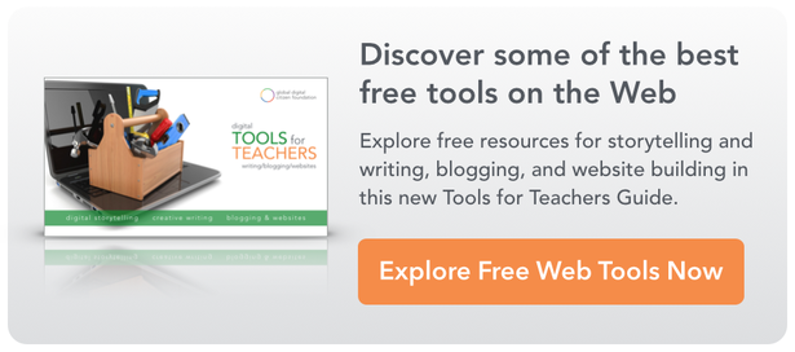10+ Essential Fluencies Resources for Music Teachers to Explore
It's said the music is the "universal language" among people. It brings us together in a way no other language can. The creative power and expression that practicing and sharing our favourite music gives us has an indescribable quality. The good news is that Essential Fluencies resources for music teachers are everywhere. It's more evidence that the Fluencies can apply to any subject.
Music has traditionally kept a place in our schools, and with good reason. There is an enormous body of research indicating the benefits a musical education has to the brain's cognitive function. It can help students do better in other areas of the curriculum. This article from PBS.org is a great place to start.
I'm a music educator who is striving to foster exemplary Global Digital Citizenship within my classroom. Here are some of my favourite Essential Fluencies resources for music teachers.
Solution Fluency
As music teachers know, solving problems is the key to our success. The ultimate team goal is the performance, and getting to that point is a collaborative effort. It takes everyone from musicians, to directors, to staging and setup. One way to empower your students in this endeavor is to give them tools they can use self-assess and monitor their own contribution to the ensemble.
Smart Music
Smart Music is an innovative practice tool. It allows students to play their parts into a microphone hooked to the computer which instantaneously gives feedback on their performance. While the student plays, the accompaniment plays along with them, adjusting tempo as needed. The student can then email their results which can be reviewed later. You can import your own music, and there are many scores online already. Anything that gets students to want to practice is a plus!
Tunerr.com
Tunerr.com is a simple online tuner app, which I keep open in my classroom terminal. The interface is big, so even students from the back of the room can see it.
Information Fluency
Arguably, the most essential information in music class is Music Theory. When a student is having difficulties understanding concepts that I’ve already gone over in class, I always direct them to SFSkids.org or MusicTheory.net.
SFS kids.org
SFSkids.org, run by the San Francisco Symphony, is a fun website that explores the basics of music reading and instrumentation.
Music Theory.net
Music Theory by Adam Ricci is the go-to site for music theory. Explanations are succinct and the interface is intuitive.
Creativity Fluency
We musicians live off this fluency. Creativity gives us our purpose. No list of Essential Fluencies resources can be complete without it. The following apps afford opportunities to compose music and share it with others.
Noteflight
Noteflight is a browser-based notation program that is beautiful, and simple to use. If you’re familiar with Sibelius or Finale, Noteflight has taken the most basic features and redesigned the interface to be both intuitive and well-laid out. For a premium subscription you can get more features, but for even the most ambitious student the free version carries a lot of weight.
Musescore
MuseScore can be downloaded to your computer and used offline, though its interface and score output takes some tweaking. For a free program, it does the trick.
For both Noteflight and MuseScore, what’s awesome is the sharing community where you can search for scores that other people have done.
Audacity
I’m also including Audacity here, which is a free multitrack audio editing tool, like a “Pro Tools lite.” Teach students how to record and overdub parts and put tracks together to make professional-sounding recordings.
Media Fluency
Opportunities to critique performances should be a staple of any music program. After all, it’s about the performance and how well you can capture the minds and hearts of your audience. Here are two websites that allow you to view quality performances and then have great discussions about them.
NPR.org
NPR.org is a terrific database for live performance videos. This site offers several genres of music to explore both, old and new. There's a feature called Tiny Desk Concerts which are intimate private song recordings by host Bob Boilen.
Classical-music.com
Classical-music.com is the BBC Music Magazine website. It features articles, interviews, recordings, free downloads, and access to their official podcast.
Collaboration Fluency
This is where music making takes on a whole new level. When coupled with technology, Collaboration Fluency has endless possibilities.
Eric Whitacre's Virtual Choir
Eric Whitacre’s Virtual Choir has been a pioneer in utilizing technology to gather hundreds of voices from all over the globe to create stunning production pieces.
Skype
It goes without saying that Skype has given people the opportunity to connect worldwide. So if you can Skype with professional musicians to have conversations and Q and A sessions with your class, what a great way to collaborate with the best from all over the world!

Global Digital Citizenship
All the above components play an important role in Global Digital Citizenship. If you are keeping in mind the most basic tenets of fair use and copyright policies, you are doing well in this area. It's even better to create performances that may highlight a particular issue concerning the improvement of your community, or call to mind current events that will impact this generation.
Adding this element to your productions will allow your students to bridge their headware to their heartware and instil lasting memories which are sure to affect them for a lifetime.
The modern innovative musician uses every means at their disposal to create an awesome final product. It doesn't matter if it's a live performance on stage, recorded music, or music videos. Empower your students with these great Essential Fluencies resources to create quality, awe-inspiring works of audio art!











